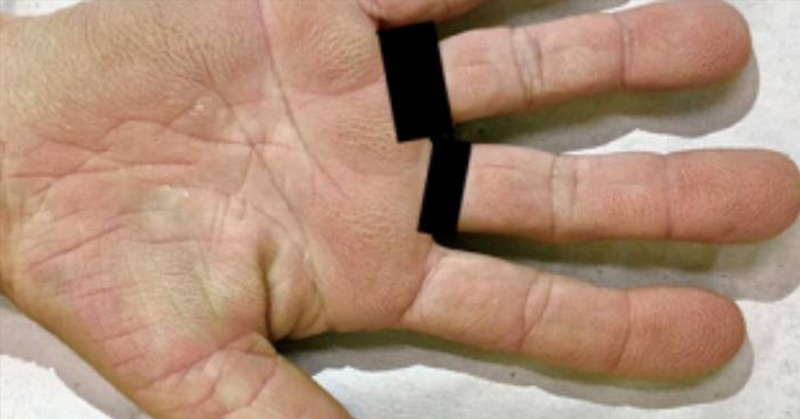Cancer is one of the leading causes of death in America, second only to heart disease [1]. Advancements in technology and years of research into the disease and all its various forms have made early detection much more possible, however, it is still important as an individual to watch out for changes in your body that could signify cancer.
Common signs and symptoms we are often told to watch out for are unexplained lumps or bumps, abnormal moles, blood in the stool, or a persistent cough that lasts more than a month [2]. Sometimes, though, less common symptoms arise that send you to your doctor’s office. Some may be directly attributable to cancer, while others may only commonly correlate with it.
Itchy, “Velvety” Palms
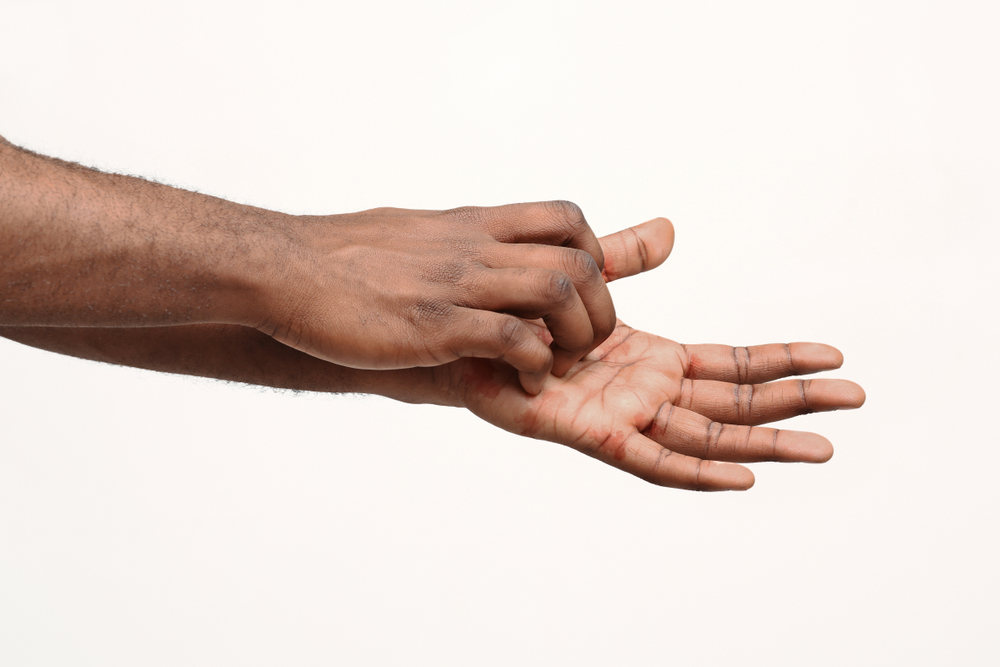
A 73-year-old Brazilian woman had been experiencing a persistent cough for the last year and had lost eleven pounds over a four-month period. Thinking this was just a symptom of a 30-year history of smoking, it wasn’t until she began to have velvety, painful lesions all over her palms that she decided to go see her doctor [3].
Turns out, she had cancer. What this unnamed woman was experiencing was a medical condition called “tripe palms”, due to its resemblance to tripe, the stomach lining of cows or sheep [3]. Tripe Palms are characterized by sharp demarcations or lines in the folds of the skin on your hands, a velvety appearance on the surface of the palm, and ridging of the skin [4]. This condition is very closely associated with lung and gastric cancer [4]. In fact, 94% of all published cases of tripe palms have been found in patients with cancer [5].
Read More: Man urges others to be vigilant after neck spot turns out to be skin cancer
Rashes and Cancer
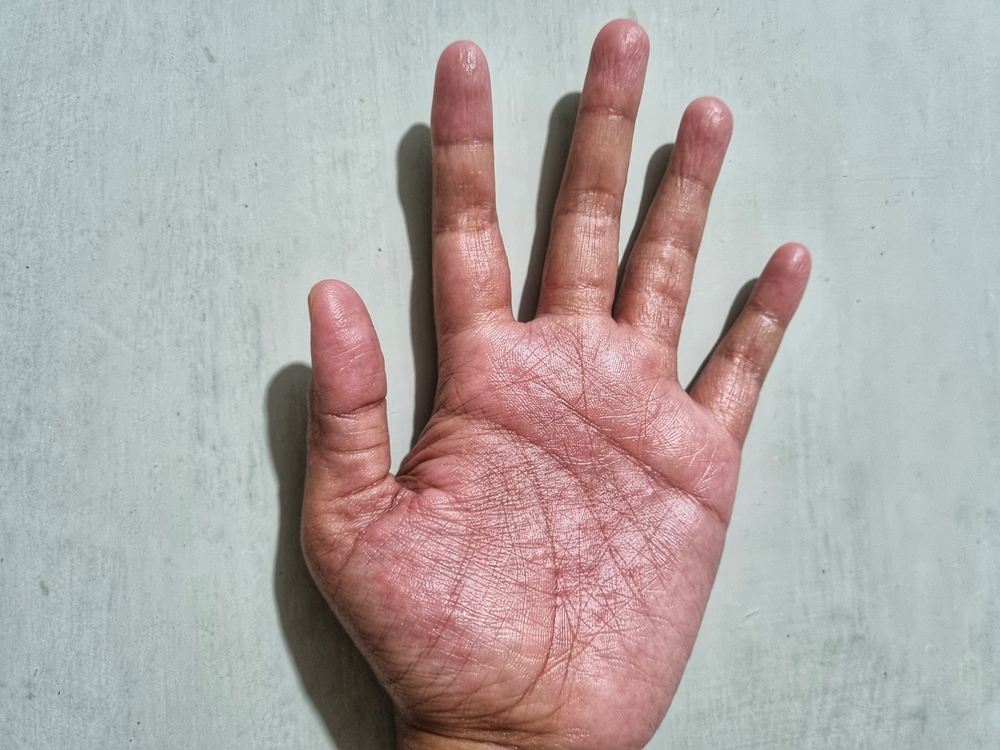
Rashes are not commonly associated with cancer, however, they should not be completely overlooked. While experts agree that it is rare, odd rashes could be a symptom of the disease [3]. Itchy, red patches on your skin are not usually cancerous, but if you have a persistent rash, particularly one that starts to spread, you should go see your doctor [3].
Mycosis Fungoides
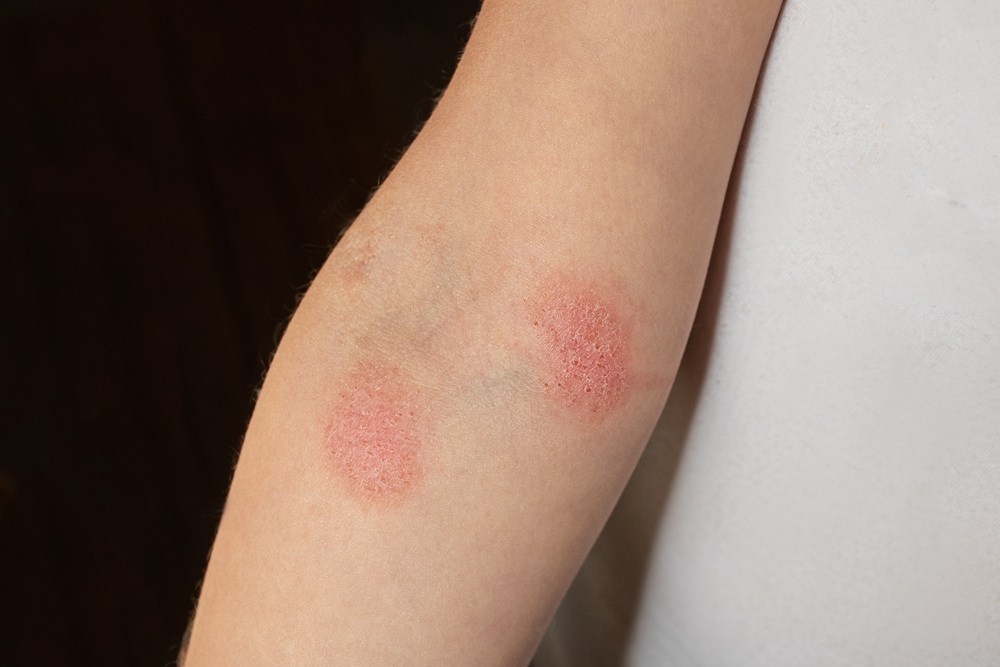
Mycosis Fungoides is a type of lymphoma, which is the most common type of blood cancer [6]. When you have this type of cancer, malignant or cancerous cells travel from your blood to the surface of your skin. The result is lesions that appear as a scaly, itchy rash [6]. This is a slow-moving form of cancer and has been shown to respond to treatments and therapies [7].
Read More: 7 Lifestyle Cancer Prevention Tips
Other Causes of Rashes
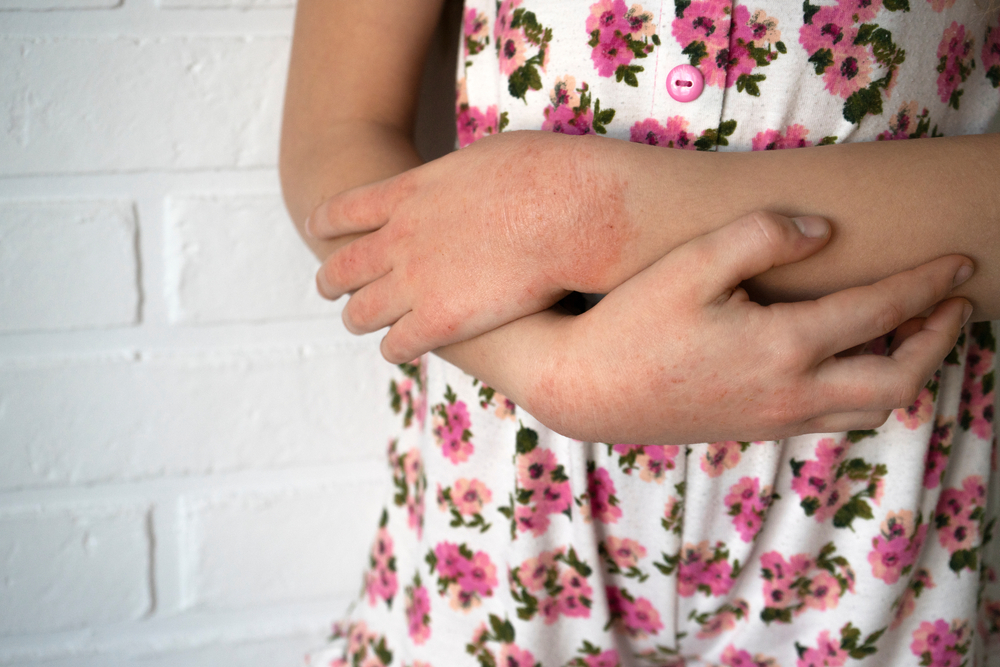
If you do notice a rash on your skin, you should not jump immediately to cancer as the underlying cause. As mentioned above, a rash is actually a very rare sign of cancer and is most likely due to something else.
Likely causes of a rash include [8]:
- Contact Dermatitis: This is when your skin comes in contact with a new, foreign substance, like if you changed to a new laundry detergent, or touched poison ivy. This is the most common reason for a rash.
- Flea or bug bites: While usually harmless, it is important to see a doctor if you think you may have been bitten by a tick.
- Allergic reactions: New medications are a common culprit here, and you should talk to your doctor if you think this could be the case.
- Eczema: While not usually dangerous, it is very uncomfortable and your doctor can help you relieve symptoms.
- Psoriasis: This usually occurs along the scalp, elbows, and joints.
- Lupus: This is an autoimmune disease. If you think this could be the cause of your rash, you should see your doctor.
- Shingles
When Should you See your Doctor?

As we have mentioned, if you notice a rash on your skin, it is highly unlikely that it is cancer. However, if the rash changes, grows, starts to appear on other parts of your body, or does not go away after a couple of days, it is worth it to go talk to your doctor [9].
You should also speak with your doctor if your rash is accompanied by the following symptoms:
- Joint pain
- Fever
- Body Aches
- Breathlessness
- Headaches
- Swollen tongue or sore throat
- Oozing or puss
- Large blisters accompanying the rash
- If it occurred shortly after eating or taking medication
- The rash is painful
- Swelling, excessive peeling, or color changes [9]
Early Detection is the Best
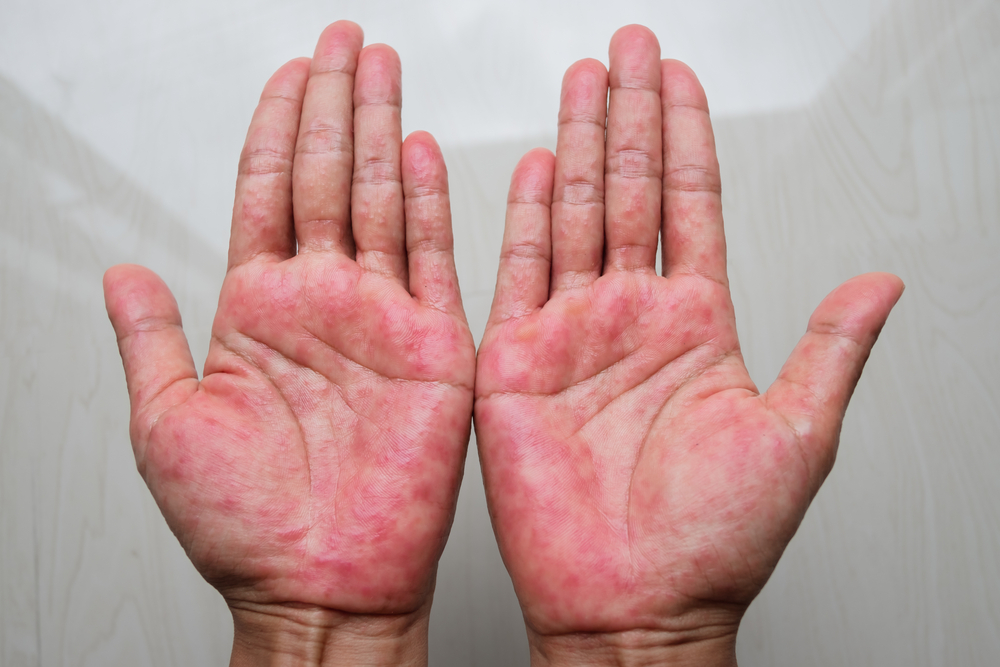
It is important to remember that no matter what your symptoms if you are in any way concerned about your health you should go see your doctor. With any disease, whether it be cancer or something else, the earlier you can detect and diagnose it, the better the prognosis. You know your body better than anyone else, so if you notice any changes you should monitor them closely and seek help when you need it.
Read More: Is coloring hair safe? Dye, straighteners may increase breast cancer risk, study finds
Sources
- https://www.cdc.gov/nchs/products/databriefs/db328.htm
- https://www.emedicinehealth.com/cancer_symptoms/article_em.htm
- https://globalnews.ca/news/6188186/woman-velvet-tripe-palms-cancer/
- https://www.nejm.org/doi/full/10.1056/NEJMicm1902529?query=TOC
- https://ascopubs.org/doi/abs/10.1200/jco.1989.7.5.669
- https://stanfordhealthcare.org/newsroom/news/press-releases/2014/mycosis-fungoides.html
- https://www.sciencedirect.com/science/article/abs/pii/0190962295902414
- https://www.healthline.com/health/rashes#causes
- https://www.healthcentral.com/article/when-to-see-your-doctor-about-a-rash
